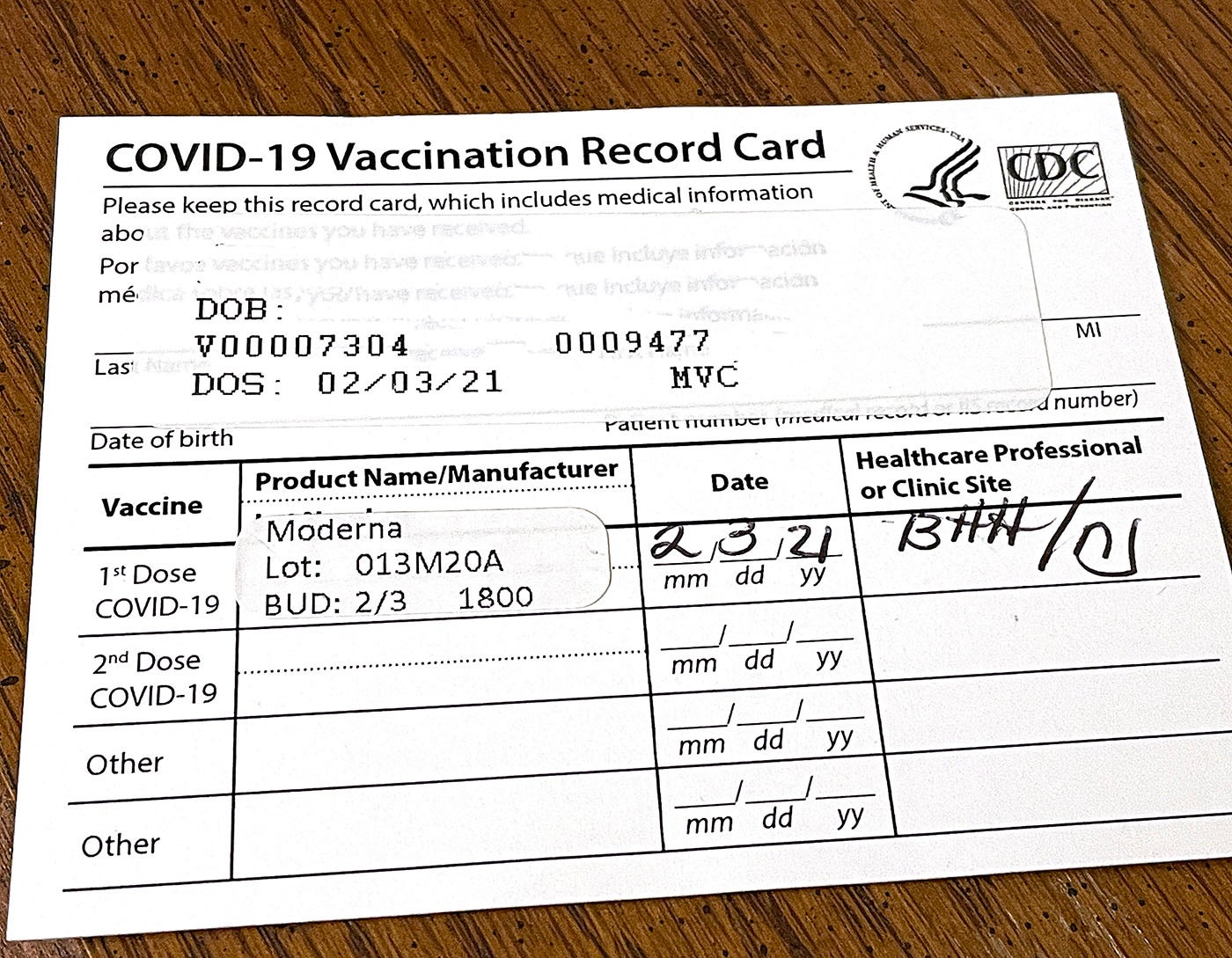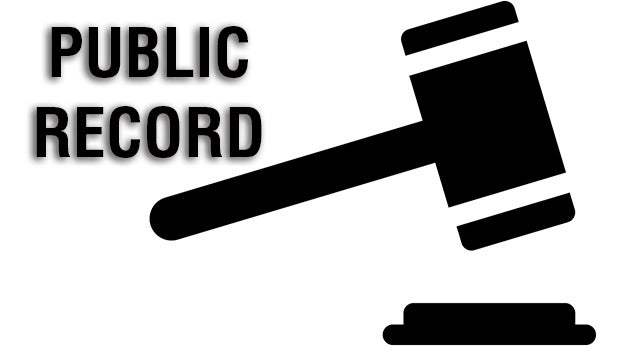Vaccination card needs to be saved, kept private
Published 8:59 am Thursday, February 18, 2021

- COVID vaccination record cards feature personal information that should not be shared on social media. This card has been edited to conceal the information of the vaccianted patient. - Photo by Jeff Moreland
Keeping up with your COVID-19 vaccination card in a safe and secure manner is going to be important, especially in the near future.
Jason Dean, executive director of clinical effectiveness for Ephraim McDowell Health said once people have received their first and second doses against COVID-19 they should hang onto it “indefinitely, until stated otherwise by the Centers for Disease Control (CDC). Treat it like any other personal information. It is a vaccination record and may be asked to be seen by certain agencies.”
The card lists a person’s name, date of birth, manufacturer and lot number of the vaccine, expiration date of the vaccine and the date and location where the vaccine was given, Dean explained.
But a vaccination card isn’t automatically added to a person’s health files with their family physician. “It will stay with the location they received the vaccine and at the state and federal levels,” Dean said.
He added that officials don’t know yet “what the parameters will be if a booster shot is needed.” Therefore folks who have taken the vaccine should keep their card handy so they can bring it with them if and when a booster shot is needed.
Also, People should also keep their card in their wallet or purse, especially if they’re traveling on vacation or for business, Dean added. “It is speculated that it may be required for flights, etc.”
Boyle County Health Department Director Brent Blevins agreed that people need to hold on to their proof of vaccination cards “for the foreseeable future. Keep it in a safe place that it doesn’t get torn up, wet or lost.” They can also be folded to fit into a wallet, he added.
Blevins said it is possible that showing your proof of vaccination will be required in the near future. “At least until enough people are vaccinated and the virus is more under control.”
Laminating your vaccination card may not be a good idea, Blevins said. It would protect it, however, “There is a section for ‘other’ on the card that could be used for future vaccinations so laminating would make that difficult.”
Blevins said because the patient’s vaccination information is entered into the state health department’s system, “most doctors’ offices will have access to it.”
The Federal Trade Commission website for Consumer Information also is telling people not to post photos of their card as proof of vaccination on social media because of the possibility of identity theft.
The website states, “Think of it this way — identity theft works like a puzzle, made up of pieces of personal information. You don’t want to give identity thieves the pieces they need to finish the picture. One of those pieces is your date of birth. For example, just by knowing your date and place of birth, scammers sometimes can guess most of the digits of your Social Security number. Once identity thieves have the pieces they need, they can use the information to open new accounts in your name, claim your tax refund for themselves, and engage in other identity theft.”
The Better Business Bureau also warns people to not share their vaccination cards online. “There are safer ways to do it.”
• You can share a photo of your vaccine sticker or set a frame around your profile picture.
• Review your security settings. Check your security settings on all social media platforms to see what you are sharing and with whom. If you only want friends and family to see your posts, be sure that’s how your privacy settings are configured.
• Be wary of answering popular social media prompts. Sharing your vaccine photo is just the latest social trend. Think twice before participating in other viral personal posts, such as listing all the cars you’ve owned (including makes/model years), favorite songs, and top 10 TV shows. Some of these “favorite things” are commonly used passwords or security questions.






